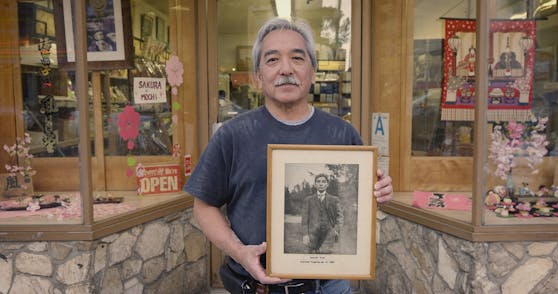From: Silver Screen
REVIEW: DCAPA Film Festival: Explore AAPI stories through these eye-opening short films

From July 15 to July 25, the 21st DC Asian Pacific American Film Festival virtually screened over 50 short and feature films, ranging from animation, comedy and drama. The festival’s mission was to uplift and cherish AAPI voices and stories while supporting and celebrating the artists behind them.
Each film explored certain facets of AAPI identity, such as race, ethnicity, gender or sexuality, and the films that comment on the intersectionality the AAPI community face are especially refreshing for those who have historically felt underrepresented.
Besides a closing event at the AFI Silver Theatre and Cultural Center, the festival was held virtually this year because of the coronavirus pandemic.
While feature films sometimes steal the spotlight, short films remain an important medium to the filmmaking world: it’s not easy to craft a narrative in under forty minutes. Here are three short films from the festival — each with its own unique and important perspectives.
“1056 Metres” (2020) directed by Edwin Ho
By Tristan Au
“1056 Metres” is what short dramatic narratives aspire to be: engaging stories that can land heavy emotional blows within its brief runtime. Director Edwin Ho delivers a patient and impactful film that disrupts the beliefs of familial obligation.
The film follows Ling (Pamelyn Chee) — a middle-aged Malaysian fish farmer — as she visits her brother, Yong (Yuan), who lives across the 1,056-meter-long causeway in Singapore. Ling has cancer and desperately needs a kidney; Yong had previously promised her one of his but has second thoughts once she arrives at his home.
What’s impressive about “1056 Metres” is its ability to brush on several aspects of life for Malaysians who both live in and commute to Singapore. Wealth and opportunity are key ideas shown in little moments: from radio broadcasts of increased causeway tolls that would hurt Malaysians more than Singaporeans, to Yong’s polished Singapore home compared to Ling’s simple one.
It’s also worth noting that this short film provides great representation for Singaporean and Malaysian Chinese peoples — which isn’t hard if you’re comparing it to “Crazy Rich Asians.”
While the premise is simple, it sells through Chee’s powerful performance. Her naive pleasantness as Ling slowly crumbles into aching sadness with arresting effect. Ho’s use of symbolism through song — specifically every Malaysian auntie’s favorite karaoke song “Que Sera, Sera” — is beautifully heartbreaking through Chee’s wavering rendition.
It may feel a bit inert at moments, but “1056 Metres” isn’t afraid to take its time with its subjects, and the results pay off: the narrative stretches the definition of familial obligation and love, and most importantly, we feel the unrelenting force of tragedy.
“1056 Metres” screened at the DC Asian Pacific American Film Festival from July 15 to July 25.
“Fugetsu-Do” (2020) directed by Kaia Rose
By Olivia Kozlevcar

Filmmaker Kaia Rose’s “Fugetsu-Do” is a poignant documentary about one of Little Tokyo’s long-standing Japanese confectioneries, Fugetsu-Do, and the store’s heart, the Kito family.
Brian Kito, the third-generation store owner who functions as a narrator, is a thought-provoking storyteller. In Kito’s retelling of his family’s history, including his grandfather’s creation of the fortune cookie and his parents’ time in Japanese Internment Camps, he builds a complex, complete bridge between his lineage and their relationship with the crafting of sweets.
Rose’s vision relies on a pastel color palette and soft pink aesthetic, a decision that compliments Kito's soft-spoken, passionate narration nicely. In a departure from the anticipated mouth-watering shots of mochi-gashi, Rose also intersperses clips of historical footage that often better suit Kito’s narration about more serious topics. These clips are overlain on shots of present-day America, reminding the viewer to consider the suffering that the Internment Camps caused — and how it’s notoriety continues to alter the way many view the country.
The short film is sweet, but not saccharine. It doesn’t sugarcoat the struggles of the Kito family, but rather accentuates the way in which they each contributed to the multi-dimensional, heartfelt history of Fugetsu-Do.
“Fugetsu-Do” screened at the DC Asian Pacific American Film Festival from July 15 to July 25.
“Mint” (2020) directed by Cameron Kalajian
By Spenser Hoover

“Mint” follows Kostya (Cameron Kalajian), a Kazakh-Russian immigrant struggling to make the final payment on his college tuition before his visa expires.
He becomes a sex worker to make ends meet, soliciting anonymous men on a dating app. This often puts him in physically and emotionally compromising situations. The most disturbing scenario occurs when Kostya meets up with a client, only to realize that they’re one of his professors.
The short film comes from an interesting premise but suffers greatly from uninspired performances. The cast regularly oversells their deliveries, transforming potentially complex characters into caricatures of themselves.
Kalajian, who also directed and wrote “Mint,” does bring some intriguing elements to the table. A bevy of close-up shots, images of dingy, oversaturated environments and a non-linear structure culminate in a claustrophobic atmosphere that allows us to relate to Kostya’s feelings. These tonal aspects do much more to elicit our sympathy than simply watching him endure hardship ever could.
Though narratively enticing, “Mint” falls far short of its potential due to a severe lack of believable portrayals. Moments intended to garner our compassion often elicit cringes instead. Kalajian succeeds in creating an uncomfortable viewing experience, but our discomfort is often unintentional.
“Mint” screened at the DC Asian Pacific American Film Festival from July 15 to July 25.
tau@theeagleonline.com, okozlevcar@theeagleonline.com and shoover@theeagleonline.com




